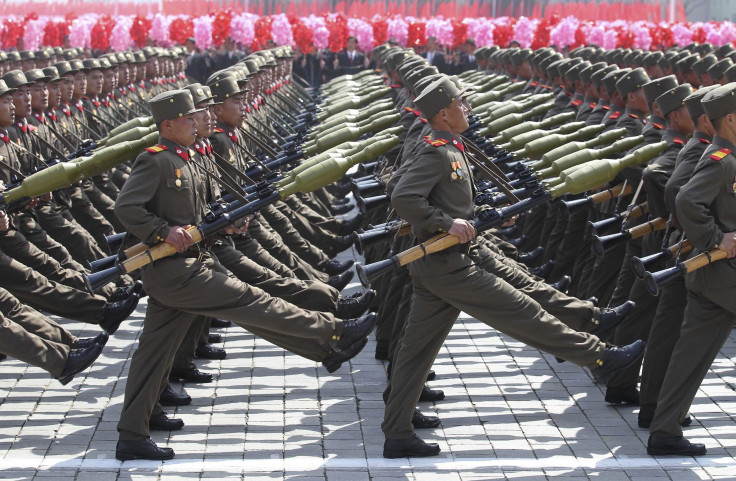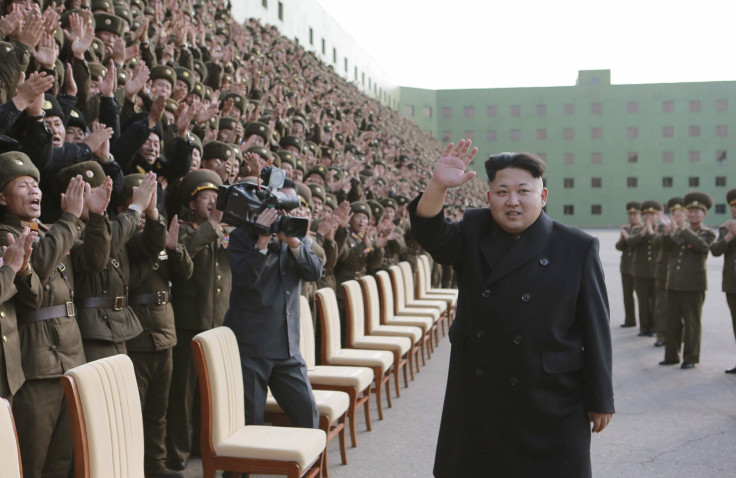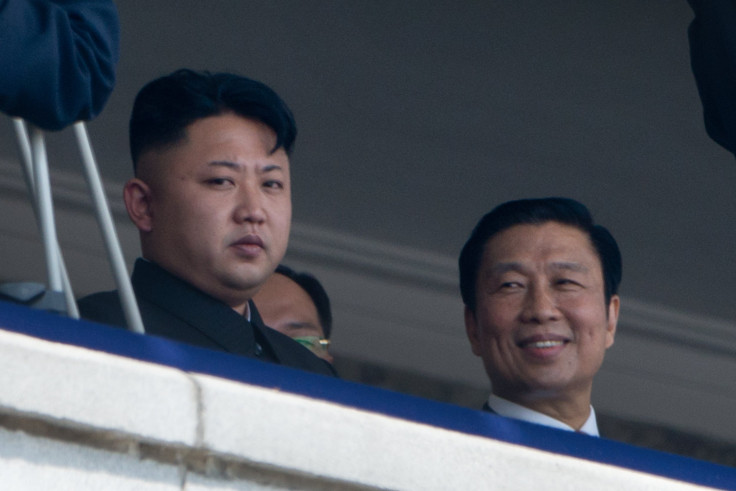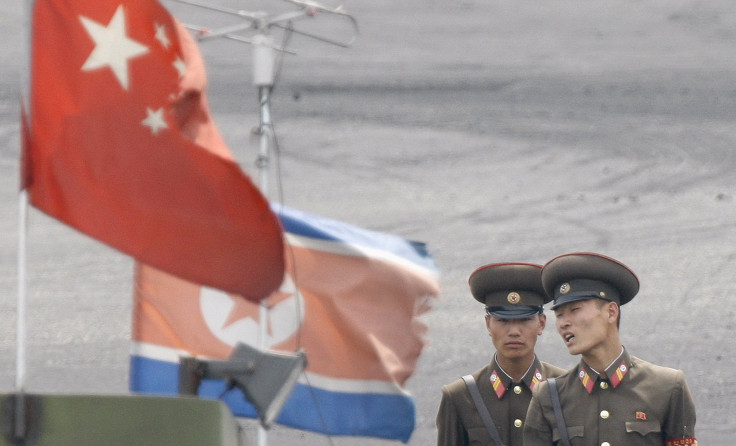Chinese Experts Raise Doubts About Korean ‘Hydrogen Bomb,’ But Warn Test Will Damage Relations

SHANGHAI — A day after North Korea claimed to have tested a hydrogen bomb, apparently within some 50 miles of its border with China, some Chinese experts joined international analysts in expressing skepticism about whether the test really was of such a device. The hydrogen bomb is estimated to be 1,000 times more powerful than a conventional atom bomb.
Some experts said it was unlikely that the North had the technology to develop such a weapon: “The country's industrial capability might not be enough to produce a hydrogen bomb," said Zhai Dequan, a research fellow at the China Arms Control and Disarmament Association, according to the official Global Times newspaper. “It's hard to believe that North Korea can successfully develop a hydrogen bomb without other nations' help.”

North Korea is believed to have exchanged nuclear technology with countries including Pakistan and possibly Iran. However, Jin Qiangyi, of Yanbian University, close to China’s border with North Korea, suggested that it was unlikely the country had gained the full capacity to build such a bomb. He told the Global Times it was more likely that the test had been of “a mini-type nuclear device, somewhere between a conventional one and a hydrogen bomb.”
China’s environmental ministry and nuclear safety administration also said that radiation levels in the border region were "normal so far," after samples were taken at more than 20 monitoring stations
Nevertheless most observers said it was quite likely that Pyongyang had tested some type of nuclear device, as it did previously in 2006, 2009 and 2013 — indeed such a test was predicted by South Korea’s military last month. And analysts say Pyongyang often carries out such tests when it is dissatisfied with its situation and craves global attention.

One Chinese expert, Ren Weidong of the China Institute of Contemporary International Relations, appeared to defend the test as a response to the “ frequent military drills conducted by the US, Japan and South Korea around the Korean peninsula,” which “have placed great pressure on North Korea… Since conventional weapons did not adequately deal with the threat, North Korea naturally turned to nuclear weapons, which are the most efficient and effective security guarantee for them,” he told the Global Times.
And another Chinese expert quoted by the paper said Pyongyang had taken the action because the U.S. had turned down North Korea’s request for bilateral talks — something China’s official Xinhua News Agency also criticized last year. The U.S. says Pyongyang’s conditions for talks, including the suspension of joint U.S. military exercises with Japan and South Korea, are unreasonable. It has called on Pyongyang to rejoin six-party talks on the nuclear issue, which involve South Korea, Russia and Japan as well as Beijing and Washington, but have been stalled since 2009.
However, some Chinese experts have said that the test could also have been an expression of North Korean frustration with China, as ties between the two traditional socialist allies have cooled in recent years. They say North Korea believes China has neglected it since President Xi Jinping came to power some three years ago. Beijing meanwhile is believed to have become frustrated at the erratic behavior of North Korean leader Kim Jong Un, who is reported to have executed several top political figures, including his own uncle, in recent years. Tensions grew again after Pyongyang’s announcement last month that it had a hydrogen bomb: observers say this amounted to a slap in the face for China, which in October sent top Communist Party official Liu Yunshan to Pyongyang for high-level talks, and had appealed to its leaders to rejoin the six-party talks.

A concert tour of China, by a North Korean girl group believed to be personal favorites of Kim Jong Un, was abruptly cancelled in December, apparently as a result of Korean irritation at Chinese criticism over the hydrogen bomb announcement.
International relations specialist Shen Dingli, of Shanghai’s Fudan University, told International Business Times Wednesday that Beijing now saw North Korea as “more of a liability than an ally,” and would be happy to cooperate with further sanctions against Pyongyang by the U.N. Security Council.
And following Wednesday's condemnation of the test by China’s foreign ministry, several Chinese newspapers Thursday published commentaries denouncing Pyongyang’s action as counter-productive. The Global Times said in an editorial that North Korea was “immersed in misshapen security policies centered on nuclear weapons,” and was seeking to “use nuclear deterrence to make up for its economic losses and political insecurity.” It said this was “a vicious circle” that would only bring more sanctions. If the country wanted to develop its economy, it added, it would be better advised to “engage with the outside world, including the west…. The nuclear umbrella can hardly shield it.”
The editorial also echoed Wednesday’s Chinese media reports of the test, which — unlike after previous tests — expressed concern at the impact of such a nuclear explosion on the physical and social environment of areas of China close to North Korea. The article said the apparent test had fuelled anxiety in border cities, and “If North Korea keeps doing such tests, it will hurt social stability in these Chinese regions, posing a big challenge to the Chinese government…. Pyongyang must consider the long-term negative impact on Beijing-Pyongyang ties and its own development,” it added.
Nevertheless, the article also warned that the U.S. might seek to undermine North Korea or initiate a “color revolution” in the country. Analysts say such comments are a reminder that China, which remains North Korea’s largest aid donor, is unlikely to be willing to completely break off links with Pyongyang, for a number of practical reasons. British Foreign Secretary Philip Hammond, visiting Beijing this week, said that China's leaders “know that if there was a meltdown on the Korean peninsula they would face potentially a very significant wave of refugees trying to move into China and the risk of instability on their borders.”

Some experts have also said that China believes it cannot afford to allow North Korea to collapse since this might result in the country being effectively taken over by South Korea, leading to a U.S. ally on China’s northeastern border.
However, many observers believe Beijing’s position as an influential broker in relations between North Korea and the outside world is likely to have been damaged by this week’s events. And several Chinese commentators have also warned that Pyongyang’s actions could lead to an increased U.S. security role in northeast Asia, something China does not want.
One highly critical comment published on a Chinese social media public account, and read by more than 40,000 people by Thursday afternoon, suggested Beijing had indulged North Korea too much in the past, and that Chinese foreign policy experts were too willing to blame the U.S. for the problems of the Korean peninsula. The article called on Beijing to support a tougher line on North Korea, saying the country’s actions threatened “every nation in the world” — but China most of all.
© Copyright IBTimes 2025. All rights reserved.






















